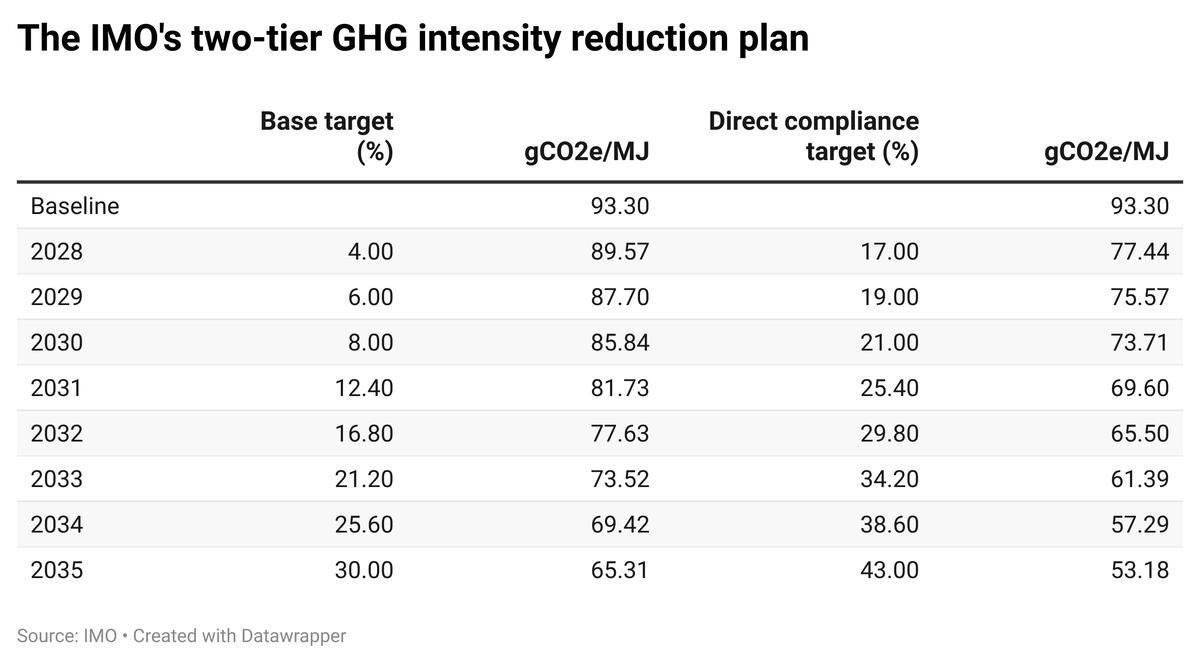Framework ‘not perfect’ but necessary – IMO Chief
“…the absence of global regulations will increase the costs of this [green fuel] transition in the long run,” said Arsenio Dominguez, Secretary-General of the IMO.
 IMAGE: Annual GHG fuel intensity reduction targets for base and direct compliance, relative to the GFI reference value. IMO, ENGINE
IMAGE: Annual GHG fuel intensity reduction targets for base and direct compliance, relative to the GFI reference value. IMO, ENGINE
The net-zero framework up for adoption this week is “not perfect,” Dominguez acknowledged at the opening of the IMO’s second extraordinary session of the Marine Environment Protection Committee (MEPC ES-2) in London.
But it would serve as a “balanced basis” for continued work ahead of its expected entry into force in 2027, he said.
Some states view the proposed GHG Fuel Intensity (GFI) reductions as insufficiently ambitious, while others argue they are too strict and could impose additional cost burdens on the sector.
Several countries have raised concerns over fuel availability, whereas others see the framework as a way to send clear demand signals to alternative-fuel producers.
Dominguez addressed these divergent views and noted that the absence of a single global regulation could lead to multiple regional and national regulations, raising long-term costs and creating multiple emissions pricing systems outside the IMO’s control.
“Prolonged uncertainty will put off investments and diminish confidence in the IMO,” he said.
He added that proposals covering reward mechanisms, fuel certification, well-to-wake emissions and a potential global fund remain under discussion and could help resolve outstanding concerns while providing greater clarity to the industry.
Dominguez also urged MEPC Chair Liberia to support adoption of the framework, describing it as a key step toward ensuring the shipping sector’s orderly and efficient decarbonisation.
By Konica Bhatt
Please get in touch with comments or additional info to news@engine.online





